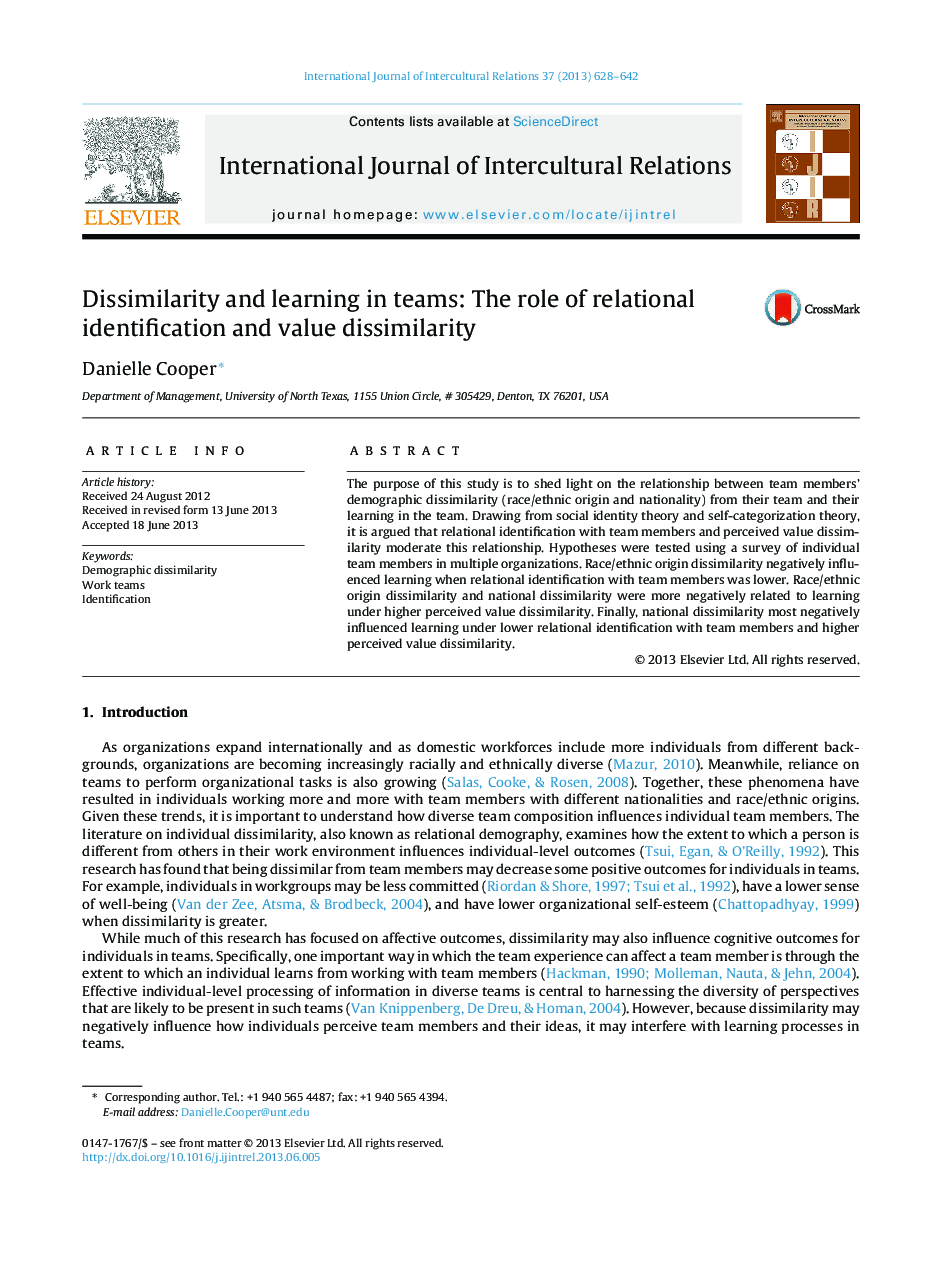| Article ID | Journal | Published Year | Pages | File Type |
|---|---|---|---|---|
| 947162 | International Journal of Intercultural Relations | 2013 | 15 Pages |
•This study provides evidence that perceived value dissimilarity and identification affect the relationship between demographic dissimilarity from a team and learning from team members.•Race/ethnic origin dissimilarity negatively influenced learning when relational identification with team members was lower.•Race/ethnic origin dissimilarity and national dissimilarity were more negatively related to learning under higher perceived value dissimilarity.•National dissimilarity most negatively influenced learning under lower relational identification with team members and higher perceived value dissimilarity.
The purpose of this study is to shed light on the relationship between team members’ demographic dissimilarity (race/ethnic origin and nationality) from their team and their learning in the team. Drawing from social identity theory and self-categorization theory, it is argued that relational identification with team members and perceived value dissimilarity moderate this relationship. Hypotheses were tested using a survey of individual team members in multiple organizations. Race/ethnic origin dissimilarity negatively influenced learning when relational identification with team members was lower. Race/ethnic origin dissimilarity and national dissimilarity were more negatively related to learning under higher perceived value dissimilarity. Finally, national dissimilarity most negatively influenced learning under lower relational identification with team members and higher perceived value dissimilarity.
